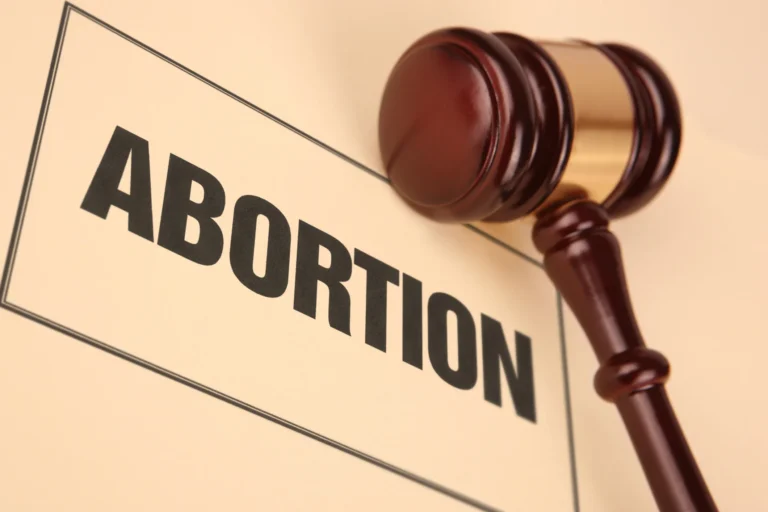KABUL, AFGHANISTAN —
Sitting in her office in Kabul, Abass Rashidi, the director of the Afghan Family Planning Association (AFPA), has had little to do these past few years. Afghan women, burkas or no, value motherhood and children too much. But with the help of Senator Hillary Clinton (D-NY), the local affiliate of the International Planned Parenthood Federation (IPPF)1 has begun to push for abortion and other “family planning” services inside Afghanistan.
AFPA+UNFPA=Abortion
Already, AFPA is working hand-in-glove with the United Nations Population Fund (UNFPA) in refugee camps in Quetta and Peshawar, Pakistan, promoting abortion under the guise of “saving women’s lives.” While it is true that maternal mortality rates among Afghan women are among the highest in the world — an estimated 20 women out of 1,000 die in childbirth — the solution is not abortion, but basic aid and adequate pre- and post-natal health care.
That the vast majority of Afghan women oppose abortion, indeed, find it reprehensible, is immaterial to Planned Parenthood’s top brass. Rashidi herself is banking on a substantial infusion of federal funds for groups like hers who will work to change the “mentality” of Afghan women, and lobby for the legalization of abortion. And their fundraising efforts have no greater ally than Senator Clinton.
The junior Senator from New York has made it clear that she views the establishment of a new Afghan government as an opportunity for her to impose her abortion agenda on Afghan women. For Clinton, shedding the burka means embracing the killing of the unborn.
Hillary Clinton’s Big Abortion agenda burst onto the international scene at the Hague Forum, the February 1999 UN conference on women’s rights. Under the special patronage Dr. Nicolaas Biegman — then president of the Hague Forum who now joins rank with Gerri Halliwell of the Spice Girls as a special ambassador for the United Nations Population Fund — Clinton gave a grandstanding speech advocating abortion as a basic human right. In the US Senate, she is working hard to gut President Bush’s Mexico City policy, which prevents US funds from going to groups that perform, promote, or lobby for the legalization of abortion.
The debate over the emergency supplemental bill for aid to Afghanistan provided Clinton with yet another opportunity to hammer the Bush administration over Mexico City.
Real Needs 0f Afghan Women
But it was at a 29 November hearing in the US Senate on the role of Afghan women in a post-Taliban government,2 that Clinton’s abortion rights advocacy reached new heights of deception. The panel of Afghan women were asked to identify their needs in order of importance. “Rebuild the homes destroyed by war,” they responded. “Rebuild the roads and the factories. Restore the water supply. And educate our children.”
Just like Bill
Not one of the Afghan women witnesses mentioned abortion or even family planning as a basic need. But Hilary was not to be deterred. She forced her abortion agenda into the hearing with a display of Clintonesque spin not seen since her husband occupied the Oval Office.
Claiming to be speaking on behalf of the female, pro-abortion Senators at the hearing, Clinton claimed that she had been attacked by “male lawmakers” for trying to “impose our views of rights” onto Afghan women.
Then she asked the Afghan women witnesses if they thought this concern had merit. As Clinton looked on benignly, smiling and nodding, the witnesses all said that they felt no imposition.
They had no idea that Clinton was really talking about her radical abortion agenda and her opposition to Mexico City. They thought that she had been criticized for promoting the kind of basic aid for Afghanistan which they themselves had come to advocate. And so they hastened to reassure her that her values were their values.
But Not Really
If Senator Clinton had been honest enough to put the question to them directly, she would have gotten a very different answer. She would have found out that Afghan women oppose abortion and value children. They want basic aid, but not at the price that Hilary and her cohorts want them to pay.
Clinton’s abortion agenda is particularly alarming when we consider the context in which provisions for abortion in Afghanistan would be provided.
For the past several years, Afghan women have been tortured, abused and oppressed by the Taliban. The need for basic care is not only extreme, given the conditions of war which have ravaged that nation, but it has also been explicitly requested by Afghan women.
Clinton and the United Nations
In addition to Clinton’s agenda in the Senate, the United Nations Population Fund (UNFPA) is spending $20 million for reproductive health care for Afghan refugees in Pakistan.3 Assistance from the UNFPA includes devices to perform abortions on displaced Muslim woman.
PRI has confirmed that operatives working for the United Nations Population Fund (UNFPA) arc on the ground in Afghanistan,4 and have been distributing abortion devices and chemicals5 — disguised in kits marked for safe delivery — in Afghan refugee camps in Pakistan and Iran.6
Help Needed
Given the great unmet need for food, shelter, water and basic health supplies — along with strong opposition to abortion throughout the Islamic world — the UNFPA’s Afghan refugee operations are gaining little ground against the intended recipients.
Early reports confirm that war-traumatized refugees, approached by UNFPA workers pandering abortion services, wander away quickly. And a few brave refugees — in an attempt to protect their female population and progeny — have confiscated morning-after abortion pills provided by UNFPA.
Still, the UNFPA offers only abortion and “family planning” services to Afghan women and their families. Infant and maternal mortality rates rank among the highest in the world in this refugee setting, yet basic life-saving aid from UNFPA remains in want.
Cultural Breakdown
The immediate goal for the UNFPA is to break down cultural resistance to abortion and contraception within the refugee camps. UNFPA’s long-term goal is to establish permanent operations in Afghanistan. In conjunction with international abortion providers Marie Stopes and the International Planned Parenthood Federation {IPPF), UNFPA plans to spend an estimated total of $20 million for abortion services within Afghanistan over the next few years.
In this way, establishing permanent operations from refugee setting, UNFPA’s campaign against Afghan refugees resembles its 1999 campaign aimed at Kosovar refugee women. PRI interviewed several Kosovar women in Pristina who described the “genocidal” function of UNFPA’s abortion services as a “White Plague” (see: The Kosovo File: www.pop.org/kosovo/kosovofile.htm).
Informed Consent?
During investigations of UNFPA operations in refugee settings, PRI discovered that abortions were conducted without adequate informed consent.
War trauma and Taliban atrocities now provide the UNFPA with the opportunity to engage in coercive family planning programs in Afghanistan, under the guise of women’s health.
The Islamic community is already beginning to voice concerns over the UNFPA’s plans for Muslim women. The spokesman for the Washington, D.C.-based Islamic Institute, Asim Ghafoor, has publicly warned that “the values of the recipients must be considered” when providing humanitarian aid to Afghans displaced by the Taliban. Ghafoor said that one reproductive health kit containing abortion machines, unwanted IUDs, and abortifacient contraceptives could undercut the good will that millions of food packets would generate. “’The whole country would never trust you again.”
Population control programs directed at traumatized Muslim refugees will not be popular in the Middle East. And, to the extent that the US is seen as supporting these anti-natal programs, the shock waves that result could threaten the fragile coalition between the US and the Islamic nations that the Bush Administration has striven so hard to build.
Endnotes
1 “Arab World Region: Afghanistan Country Profile,” International Planned Parenthood Federation; http://ippfnet.ippf.org/pub/IPPF_Regions/IPPF_REGION.asp?region=AWR#AFGHANISTAN.
2 “Hillary Clinton explores the future of women in Afghanistan,” Associated Press. 29 November, 2001.
3 “UNFPA officials say agency is ready for refugee exodus in Afghanistan,” UNFPA Press release, October 2001; http://www.unfpa.org/news/atwork/afghanwomen02.htm
4 “Annan appoints envoy responsible for early recovery in Afghanistan,” 17 November 2001, Xinhua News Agency.
5 “Afghan refugee women at risk,” 3 November 2001, BBC News.
6 “UNDP requests relief package worth $586 million for Afghan refugees,” 14 October 2001, Iranian News Agency.








